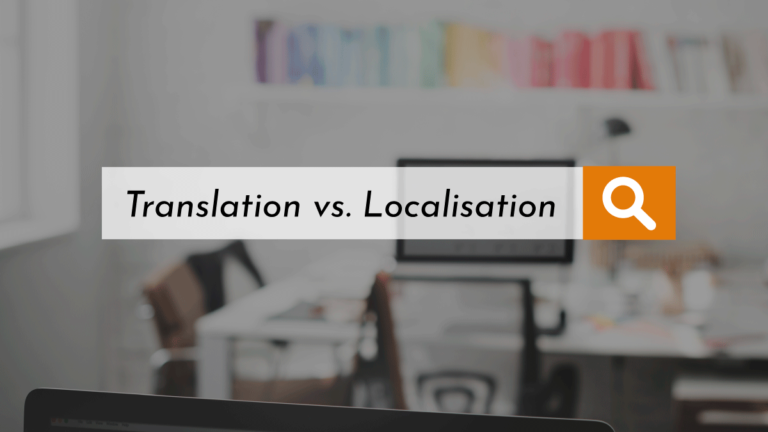Key Differences Between SEO Translation and Localisation

Expanding your business to foreign markets is an uphill task. However, if you follow a carefully thought-out plan, it will become highly profitable. The first steps are to prepare the logistics and ensure compliance with each target country’s regulations. After that, you will have one critical element to solve: How will foreign audiences find you? Well, through your SEO translation, of course.
Do not panic if you have not yet prepared the strategy to go global. This blog will tell you the main differences between translation and localisation SEO to ensure that your brand’s visibility knows no limits. So be sure to read on.
Some Prior Considerations
Before we delve into the differences between SEO translation and localisation, we first need to clarify a few essential points.
SEO Basics
These are fundamentals any local SEO strategy should cover:
- Research the trending keywords that individuals use to find products related to your business. Keep in mind that these trends can change over time, so check your analytics regularly. To get a high position on foreign SERPs, you should count on international SEO services—more details further down in this article.
- Analyse which are the most popular social media networks in your industry to promote your business. It is not necessary to cover all the existing platforms, but the ones that will help to increase your website traffic. These backlinks will boost your brand’s authority. Thus, make sure you keep a regular social media presence.
- Offer informative and relevant content on your website to build engagement while helping search engines find your brand. Also, remember that it is all about variety: Not everyone wants to read blogs; hence the addition of videos, e-Books, etc., will be key. This will be equally important for your global strategy—which is why you need SEO translation.
Learn more about SEO and how to create an effective SEO strategy.
International SEO Is Not the Same as Multilingual SEO
Although they seem synonymous, they are not. While they share similarities, each one pursues different goals. Let us take a closer look.
- Multilingual SEO is the process of optimising a website for multiple languages. It is essential for expansion in foreign markets and companies operating in multilingual countries. This is the case, for example, of Canada, which has both English and French speakers. As it is a complex task, you should rely on multilingual SEO experts to ensure your content has the same impact in every language.
- International SEO focuses on the same language with speakers in different countries and pays attention to its various dialects. In other words, it may not be necessary to search for keywords in another language but to localise them according to the region. For example, people do not use the same terms in England as in New Zealand when searching online.
#OptimationalTip: SEO is not just about your website and Google. YouTube is one of the most popular search engines in the world. So make sure you also implement an international SEO Strategy for YouTube and promote your brand in every format.
SEO Translation vs Localisation: Which One Do You Need?
These two concepts share the same characteristics as those covered in the previous section: They sound similar, but their objectives are different. However, as they complement each other, you will need both approaches in your international SEO Strategy.
SEO translation is the process of making your content multilingual without neglecting the strategy for web optimisation of the original text. The goal is to ensure that your website’s performance in the search engine rankings is still satisfactory for every target market. That is to say, if your local strategy is successful, it should maintain that characteristic in the other languages as well.
Localisation SEO is more about providing international customers with a seamless experience that feels, in a way, local. No matter the language, localisation goes further than translation and adapts the cultural components. For this, professional linguists specialising in international SEO services will play a critical role. They will adapt elements such as currencies, metrics, the idioms you use in your communications, and even your slogan!
#OptimationalTip: Advertising is also important when considering if it is better to rely on SEO translation or localisation. The cost of a translation mistake can be huge: You do not want your brand to be a laughing stock for not localising your campaigns correctly.
Localisation and SEO Translation: Your Business Allies
As you can see, SEO translation is essential to establish an international web presence, but maybe not enough to get the most out of your website. If you want your SEO efforts to be worth your time and budget, make sure they have the same strength in every market you operate. By addressing cultural diversity, you will engage more people with your content, which will result in more leads and more revenue.
Contact us today to get help from multilingual SEO experts. We know how to support your international growth.


